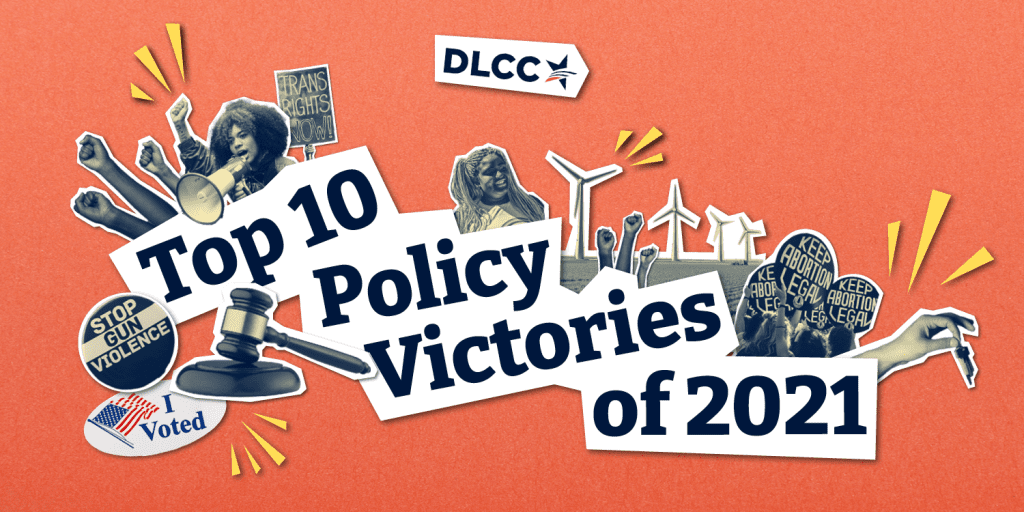
Negative stories and drama in DC tend to dominate the news cycle, but across the country, Democratic majorities in state legislatures spent 2021 delivering much-needed progress and support to their constituents. We want to shine a bright light on the great policies that have been accomplished this year and highlight the incredible ideas coming out of blue states — the laboratories of democracy.
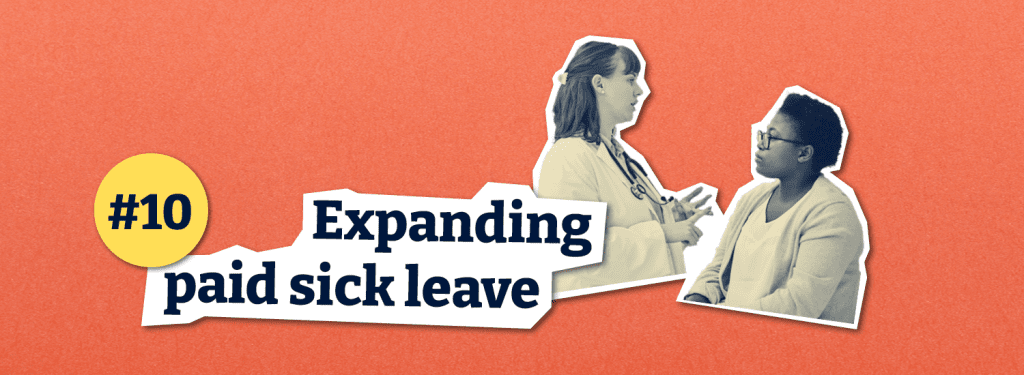
Paid sick leave allows workers the time and resources to care for their health and the health of their families — in a pandemic, it’s also a critical tool for slowing the spread of a deadly transmittable virus. Thanks to Democratic leadership, New Mexico joined 15 other states in passing landmark paid sick leave legislation. And as of this year, Mainers, Coloradans, and Connecticut workers are now eligible for the benefit. States that already required paid leave, like Nevada and Washington, expanded the benefit to reflect the new pandemic-related challenges that many workers face; Nevada extended paid leave to folks getting vaccinated and Washington expanded the benefit to make sure folks out of work because of COVID still received their benefits.
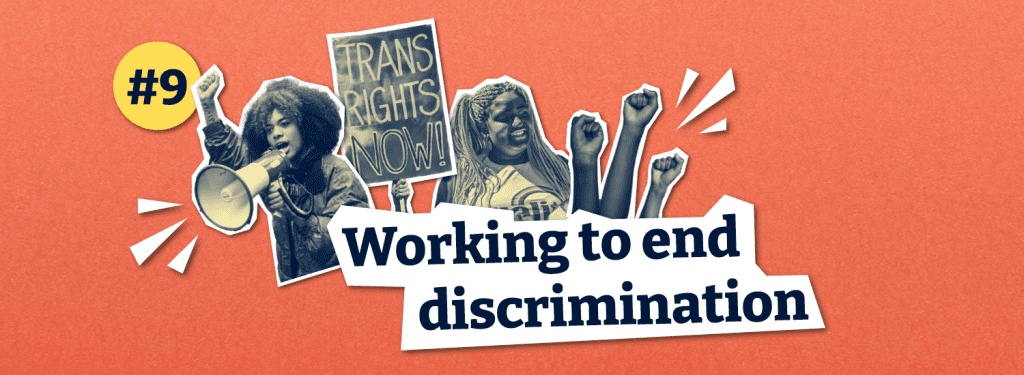
The bad news: marginalized communities across the country still face discrimination that threatens their health, well-being, and lives. The good news: Democratic state legislators are working to put a stop to it. This year, Virginia, Vermont, Oregon, and Maryland all banned the so-called “gay panic defense” that’s been used to excuse violent hate crimes against the LGBTQ community. Six Dem-majority states banned hair discrimination, which disproportionately targets, shames, and punishes Black and indigenous students and workers. Washington banned insurers from denying or limiting coverage for gender-affirming health care, and New York made it easier than ever to change your name and gender on government documents. Virginia banned disability discrimination and five other states made it illegal to pay workers with disabilities less than the minimum wage. And with a commitment to prioritizing racial equity, Democrats in both Connecticut and Virginia declared racism a public health emergency.
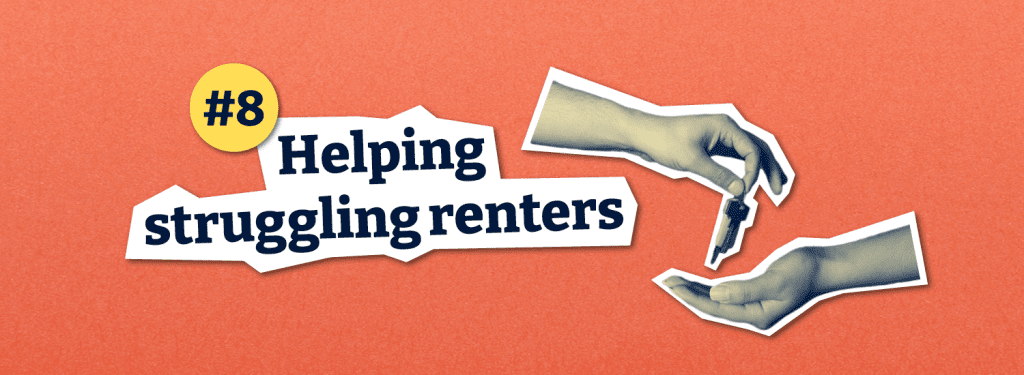
Access to safe and affordable housing has always been a challenge, but a global pandemic only heightened the threat. Democrats in states like New York and Virginia allocated billions of dollars in federal COVID relief to help renters struggling to pay the bills. Maine’s legislature green-lit the building of over 1,000 affordable housing units that will be energy efficient — the future of sustainable living. But Democrats also developed new approaches to aiding renters, who are often representing themselves in matters with more powerful landlords. So Washington became the first state in the country to guarantee lawyers for low-income tenants facing eviction.

While Republican-controlled state legislatures spent the year making it easier than ever to purchase and carry a gun, Democrats doubled down on efforts to prevent senseless violence and keep dangerous weapons away from people who intend to do harm. Virginia banned convicted domestic abusers from having a gun, as did Colorado, which also implemented a waiting period for gun purchases and passed a law requiring gun owners to lock up their weapons. That safe storage law has already been used to charge family members of minors who brought their weapons to school. Rhode Island made it illegal to bring a gun onto school grounds, while Virginia and Washington passed similar bans on the grounds of their capitols, and in Washington’s case, banned openly carrying guns at protests. And Democrats in New York and Delaware both outlawed ghost guns — kits or 3D-printed contraptions that enable people to make untraceable weapons in their homes without any oversight or background checks.

This year, New Jersey, New York, New Mexico, Virginia, and Connecticut all legalized marijuana, addressing long-standing racial inequities in our criminal justice system and benefitting the states economically through increased tax revenue. In New York, Democrats prioritized legislation that expands expungements of past convictions and directs revenue from legal sales into communities that were targeted in the War on Drugs. The New Mexico law automatically expunged past marijuana convictions, and Virginia’s policy prioritizes licenses for people from communities of color. The cannabis industry also boosts the economy of states still recovering from the pandemic; in New York alone, legalization is expected to have a $3.5 billion impact and create over 60,000 jobs. 18 states have now legalized marijuana and it remains popular with the overwhelming majority of Americans.

Our kids have suffered huge educational and social setbacks because of the pandemic, and state Democrats are responding to this crisis by investing more than ever in public education. This year, California approved funding to establish universal pre-K. Virginia Democrats gave teachers a 5% raise and made community college free for tens of thousands of low and middle-income students pursuing jobs in high-demand fields. And under Democratic leadership, the Nevada legislature approved a $500 million increase in education funding over the next two years, a stark contrast to the agenda advanced by Republicans in neighboring Arizona. There the GOP developed a budget that drastically reduces taxes on the rich — undermining a voter-approved initiative that would have raised nearly $1 billion for Arizona schools through higher taxes on the wealthy.
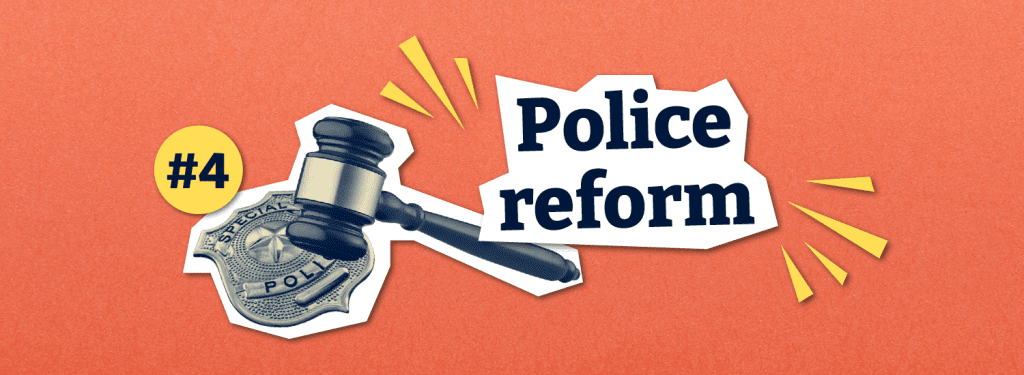
The legacies of George Floyd, Breonna Taylor, and other victims of police violence continued to inspire major reforms in blue states this year. Maryland’s Democratic legislators overrode the Republican governor’s veto to pass a police reform package that included the establishment of a civilian review board, restrictions of no-knock warrants, and mandated body cameras. Democrats also made Maryland the first state in the nation to repeal its so-called “police bill of rights,” which functioned as “one of the biggest obstructions to police accountability, hindering investigations and shielding misconduct from public scrutiny.” California passed its own package of reforms, raising standards and aiming to take badges away from police who lie, use excessive force, or display racial bias. New Mexicans are now allowed to sue government entities they believe have violated their civil rights, a law that until now, had only been enacted in Colorado. New Jersey moved to increase racial diversity among its officers, and Washington joined at least seven other states in restricting no-knock warrants.
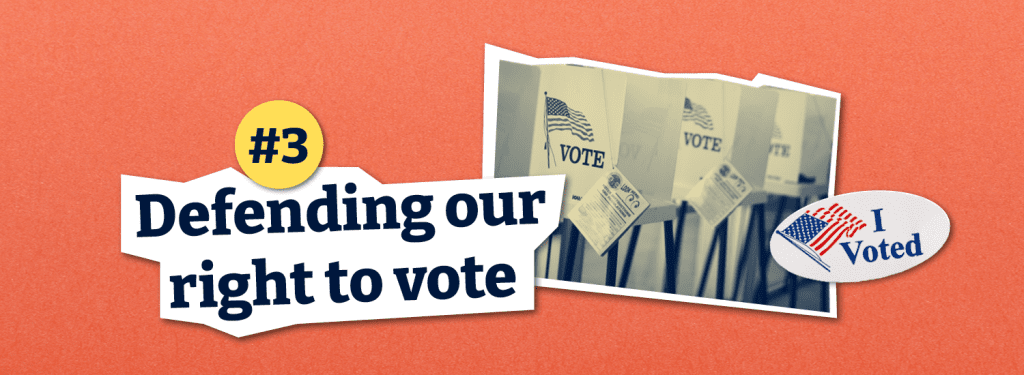
While Republicans are in the midst of a well-funded, well-coordinated effort to roll back voting rights, Democratic majorities in the states moved quickly to expand access to the ballot box. Virginia became the first state in the South to enact a Voting Rights Act, which provides oversight should local officials try to shut down polling places, make it harder for non-English speakers to vote, or pursue other discriminatory practices. Democrats passed automatic voter registration in Delaware, Hawaii, Connecticut, and Nevada, which also pushed through legislation to permanently expand mail voting after a successful 2020 election administration during the pandemic. Maine will now allow for online voter registration, as well as permanent use of drop boxes. And Washington Democrats re-enfranchised more than 20,000 people by passing a bill restoring voting rights to folks previously convicted of a felony, effective starting next year.
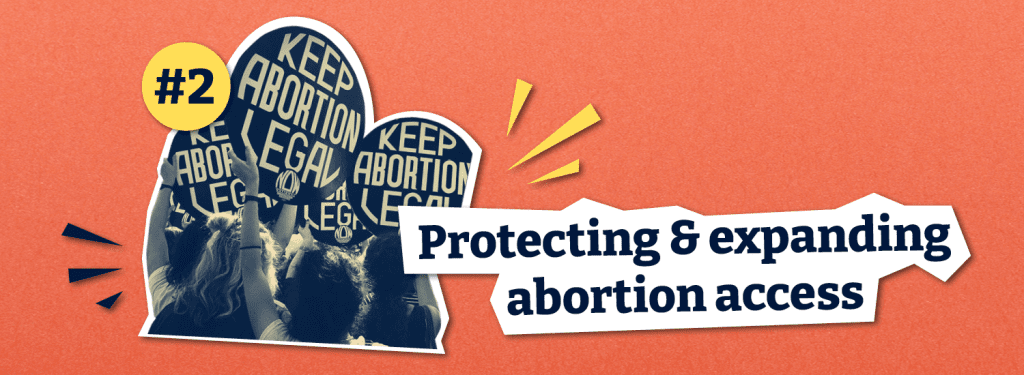
With the Supreme Court dangerously close to overturning Roe v. Wade, Democratic state legislatures are increasingly our last line of defense when it comes to defending reproductive freedom. This year, New Mexico repealed a law criminalizing abortion, ensuring that access is protected should Roe fall. Virginia, Washington, and Colorado all made insurance coverage for abortion far more accessible, while Hawaii and Maine expanded access by widening the category of health care workers who are qualified to administer abortion care, a critical tool in rural areas. And California took major steps to protect the lives of reproductive health providers and their patients — Democrats passed more severe penalties for those who post personal information about abortion patients and made it a crime to intimidate patients and providers within 100 feet of a clinic.

Climate change represents an existential threat to our future and tackling it requires an all-out effort, which is why state Democrats have stepped up to lead the way. Hawaii became the first state in the nation to declare a climate emergency, establishing a partnership between environmental organizations and the state government to quickly develop solutions. New York, Rhode Island and Massachusetts passed legislation setting a net-zero carbon emissions target by 2050, while Washington Democrats enacted a plan to reduce 50% of their emissions by that same year. Oregon and Virginia both set new emissions expectations for their state’s energy companies, with goals of getting to 100% renewable sources by 2040 and 2050 respectively. In all, at least 12 Democratic-majority states passed legislation this year to tackle climate change and create clean energy jobs.

